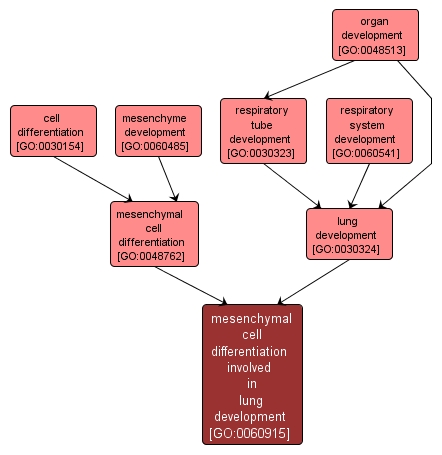| Desc: |
The process whereby a relatively unspecialized cell acquires specialized features of a mesenchymal cell of the lung. A mesenchymal cell is a loosely associated cell that is part of the connective tissue in an organism. Mesenchymal cells give rise to more mature connective tissue cell types. |














